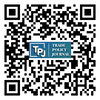PENYEMPURNAAN KETENTUAN SURAT KETERANGAN ASAL TERHADAP BARANG IMPOR YANG DIKENAKAN TINDAKAN PENGAMANAN
Keywords:
trade remedy; Surat Keterangan Asal (SKA), non-preferensi, Regulatory Impact Analysis (RIA)Abstract
Ringkasan Eksekutif
Sebagaimana diatur di dalam Peraturan Menteri Perdagangan No. 37 Tahun 2008, importir yang mengimpor barang dari negara-negara yang dikecualikan dari pengenaan tindakan pengamanan (safeguard), wajib menyertakan surat keterangan asal (SKA). Namun demikian, ketentuan tersebut memiliki celah sehingga mengakibatkan implementasi kebijakan trade remedy menjadi kurang efektif. Hal ini ditandai dengan adanya praktik circumvention, khususnya peningkatan impor dari negara yang dikecualikan pada pengenaan safeguard, dan dispute pemungutan bea masuk trade remedy di lapangan. Untuk meningkatkan efektivitas implementasi kebijakan trade remedy, Pemerintah memiliki dua opsi kebijakan yaitu mengoptimalkan kondisi status quo Permendag No. 37 Tahun 2008 atau melakukan penyempurnaan terhadap Permendag No. 37 Tahun 2008. Berdasarkan hasil analisis menggunakan Regulatory Impact Analysis (RIA), diperoleh kesimpulan bahwa Pemerintah perlu melakukan penyempurnaan Permendag No. 37 Tahun 2008 dengan membuat Permendag yang mengatur ketentuan prosedural dalam penentuan asal barang dan SKA terhadap barang impor yang dikenakan trade remedy yang menyertakan SKA non-preferensi. Penyempurnaan tersebut memiliki manfaat yang lebih besar serta biaya yang lebih rendah dibandingkan apabila Pemerintah tidak dilakukannya perubahan ketentuan sama sekali (do nothing). Beberapa hal substansial yang perlu diatur lebih lanjut dalam ketentuan asal barang dan SKA non-preferensi, antara lain tata cara penelitian SKA non-preferensi yang sederhana, pengaturan kriteria asal barang, dan informasi/data minimum yang perlu tercantum dalam SKA.
Kata Kunci: trade remedy; Surat Keterangan Asal (SKA), non-preferensi, Regulatory Impact Analysis (RIA)
Executive Summary
As regulated in the Regulation of the Minister of Trade No. 37 of 2008, importers who import goods from countries that are exempt from the imposition of safeguard, are required to enclose a certificate of origin (COO). However, this regulation has loopholes which result in the implementation of the trade remedy policies being less effective. This is indicated by the circumvention practices , especially increasing import from third countries that are excluded from the imposition of safeguards, and disputes on the collection of trade remedy duty. To increase the effectiveness of implementing the trade remedy policy, the Government has two policy options, namely optimizing the status quo conditions of Minister of Trade Regulation No. 37 of 2008 or making improvements to Minister of Trade Regulation No. 37 of 2008. Based on the analysis using Regulatory Impact Analysis (RIA), it is concluded that the Government needs to revise the Minister of Trade Regulation No. 37 of 2008. This can be done by adding procedural provisions in determining the origin of goods and COO on imported goods which are subject to a trade remedy measure that enclose non-preferential COO because it has greater benefits as well as lower costs compared to if the Government do not change the provisions (do nothing). Several substantial matters that need to be regulated further are a simple non-preferential COO inspection procedures, setting criteria for the origin of goods, and minimum information/data requiredin the COO.
Key Words: trade remedy; Certificate of Origin (COO), non preferential, Regulatory Impact Analysis (RIA)
References
Alhayat, A. P. (2017). Ketidakefektifan Kebijakan Anti-Dumping Produk Impor Baja Indonesia:Sebuah Analisis Awal. Buletin Ilmiah Litbang Perdagangan, VOL.11 NO.2, 143-168.
Aprianti, E., Krisnafi, Y., & Siregar, A. N. (2020). Dampak Peraturan Menteri Perikanan dan Kelautan No.74 Tahun 2016 terhadap Impor Produk Perikanan (Studi Kasus Pelabuhan Tanjung Perak, Surabaya). Jurnal Kebijakan Perikanan Indonesia Vol 12 No.2, 109-122.
Barbaglia, L., Croux, C., & Wilms, I. (2022). Detecting Anti-dumping Circumvention: A Network Approach. Papers 2207.05394, arXiv.org.
Customs Acts. (1901). Retrieved from Commonwealth Consolidated Acts: http://www5.austlii.edu.au/au/legis/cth/consol_act/ca1901124/s153q.html
Hariyanto, E. (2020). Potensi dan Strategi Penerbitan Blue Sukuk. Indonesia Treasury Review: Jurnal Perbendaharaan, Keuangan Negara dan kebijakan Publik, 151-170.
Hoekman, B., & Inama, S. (2018). Harmonization of Rules of Origin:An Agenda for Plurilateral Cooperation? East Asian Economic Review vol. 22, no. 1 , 3-28.
Kobayashi, T. (2021). Can We Secure Consistency Between Rules of Origin and Measures to Prevent Circumvention of Anti-Dumping Measures Under the WTO Framework? Policy Research Institute, Ministry of Finance, Japan, Public Policy Review, Vol.16, No.5.
Liu, X., & Shi, H. (2018). Anti-dumping duty circumvention through trade rerouting: Evidence from Chinese exporters. The World Economy, 1427 - 1466.
OECD. (2008). Introductory Handbook for Undertaking Regulatory Impact Analysis (RIA).
Primadista, T., Josias, A., & Runturambi, S. (2022). The Analysis of Trade Circumvention, Threats and Risk to the Duties and Functions of the Directorate General of Customs and Excise (DJBC) Indonesia. Budapest International Research and Critics Institute-Journal, 5693-5703.
Regulations Governing the Determination of Country of Origin of Imported Goods. (2010). Retrieved from Law & Regulations Database of The Republic of China (Taiwan): https://law.moj.gov.tw/ENG/LawClass/LawAll.aspx?pcode=G0350047
Ujiie, T. (2006). Rules of Origin: Conceptual Explorations and Lessons from the Generalized System of Preferences. ERD Working Paper No.89.
Widiyanto, Y. W., & Puspita, L. S. (2020). Evaluasi Dampak Pengenaan Pajak Pertambahan Nilai pada Perdagangan Melalui Sistem Elektronik. Bappenas Working Papers Vol III No.2, 109-125.
WTO. (2023, 06 01). Technical Information on Rules of Origin. Retrieved from World Trade Organization: https://www.wto.org








 Trade Policy Journal
Trade Policy Journal
